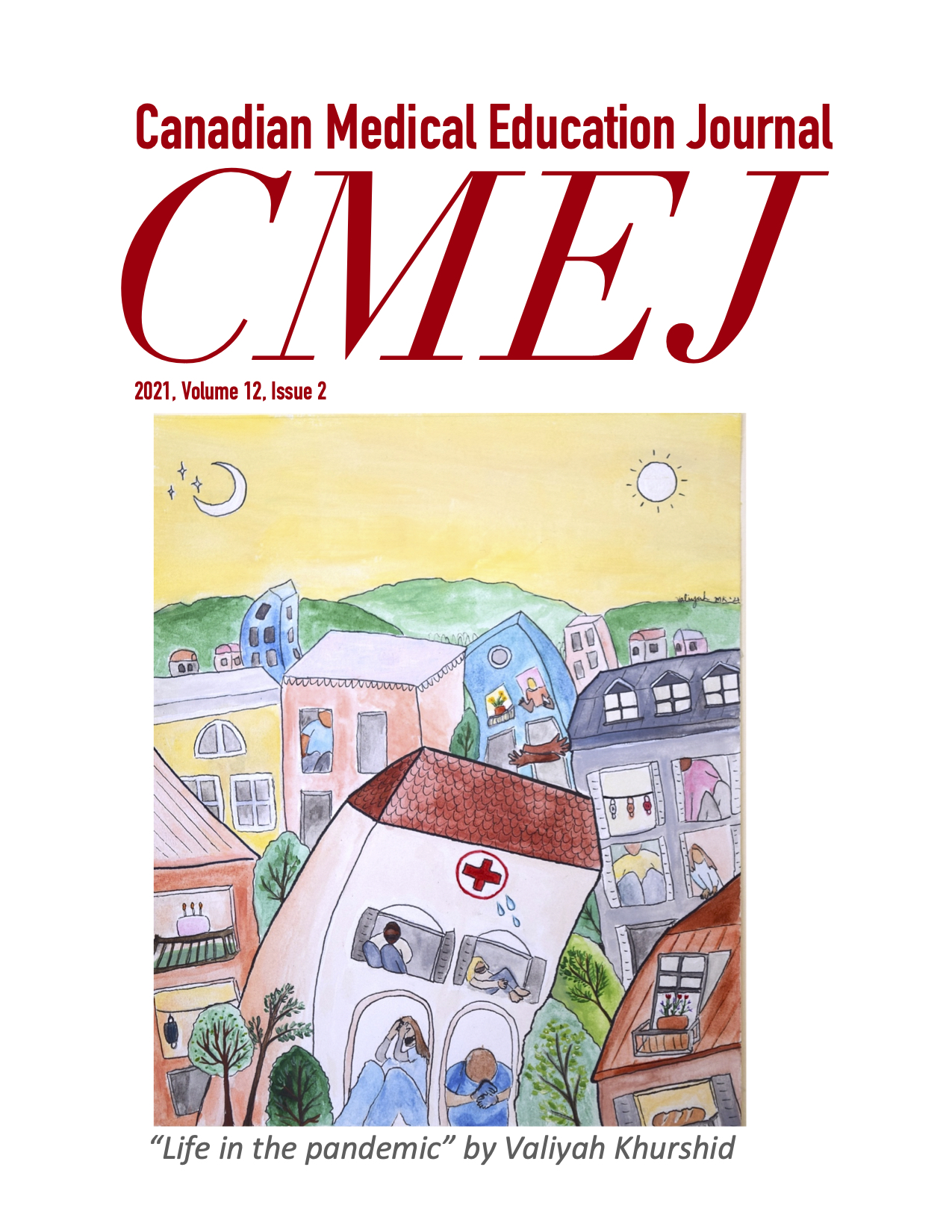Mindfulness-based stress reduction for medical students: a narrative review
DOI:
https://doi.org/10.36834/cmej.68406Abstract
Background: Medical students are at high risk of depression, distress and burnout, which may adversely affect patient safety. There has been growing interest in mindfulness in medical education to improve medical student well-being. Mindfulness-based stress reduction (MBSR) is a commonly used, standardized format for teaching mindfulness skills. Previous research has suggested that MBSR may be of particular benefit for medical students. This narrative review aims to further investigate the benefits of MBSR for undergraduate medical students.
Methods: A search of the literature was performed using MedLine, Embase, ERIC, PSYCInfo, and CINAHL to identify relevant studies. A total of 102 papers were identified with this search. After review and application of inclusion and exclusion criteria, 9 papers were included in the study.
Results: MBSR training for medical students was associated with increased measures of psychological well-being and self-compassion, as well as improvements in stress, psychological distress and mood. Evidence for effect on empathy was mixed, and the single paper measuring burnout showed no effect. Two studies identified qualitative themes which provided context for the quantitative results.
Conclusions: MBSR benefits medical student well-being and decreases medical student psychological distress and depression.
Downloads
Published
Issue
Section
License
Submission of an original manuscript to the Canadian Medical Education Journal will be taken to mean that it represents original work not previously published, that it is not being considered elsewhere for publication. If accepted for publication, it will be published online and it will not be published elsewhere in the same form, for commercial purposes, in any language, without the consent of the publisher.
Authors who publish in the Canadian Medical Education Journal agree to release their articles under the Creative Commons Attribution-Noncommercial-No Derivative Works 4.0 Canada Licence. This licence allows anyone to copy and distribute the article for non-commercial purposes provided that appropriate attribution is given. For details of the rights an author grants users of their work, please see the licence summary and the full licence.











